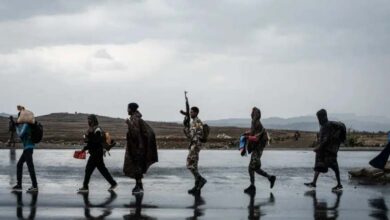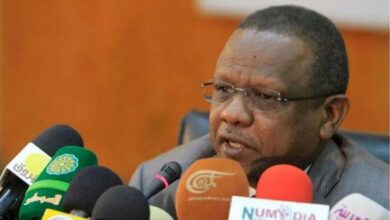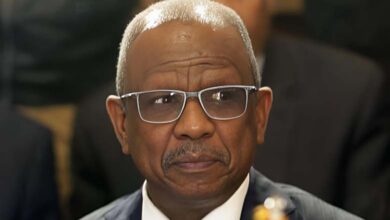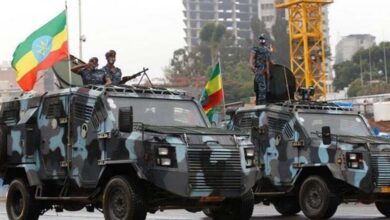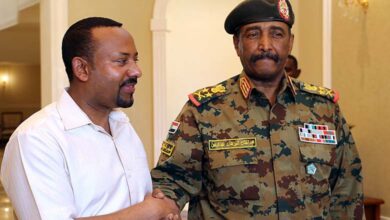The Role of the United Arab Emirates in Supporting the Humanitarian Response in Sudan
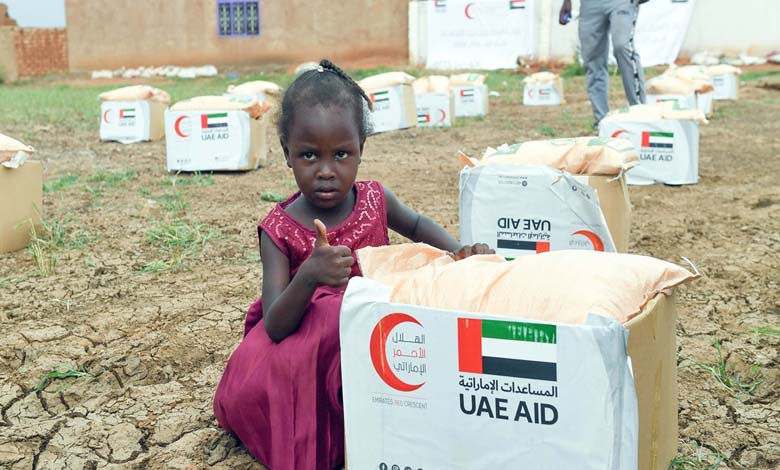
The UAE, the only Arab country among the top five contributors to Sudan’s humanitarian response plan, also finances response plans for numerous other countries worldwide.
-
The United Arab Emirates and Sudan discuss enhancing cooperation in various fields
-
Sudan and the United Arab Emirates signed a Memorandum to establish solar energy plants
Sudan is an ancient nation steeped in a rich blend of cultures and ethnicities. For the Sudanese, the Nile is much more than a vital source of water and natural resources; it is an integral part of their cultural and historical heritage. Flowing through Sudan, the Nile symbolizes life and prosperity, serving as a vital resource for the livelihood and agriculture of millions of Sudanese. Yet despite its rich diversity and abundant resources, Sudan is currently facing a severe ordeal that requires global collaborative efforts.
The Humanitarian Crisis in Sudan
More than 25 million people, over half of Sudan’s population, are suffering from acute hunger following more than a year of ongoing conflict. It is estimated that the number of displaced individuals in Sudan has surpassed ten million, making displacement far more than a mere relocation: it is a complete uprooting, where the displaced carry their broken dreams in worn-out bags, as if enduring a slow death.
-
Humanitarian Aid on the Geneva Negotiation Table: UAE Leads Efforts to Assist Sudanese
-
Blinken’s Call: Is Sudan climbing the Swiss Mountains under American pressure?
Imagine the plight of a child who has lost his family and home: how does he perceive the world? What are his dreams and hopes? Or an agricultural worker who has lost everything: how does he confront the specter of loss? And what about doctors in refugee camps? Can they truly help everyone? These questions reveal the depth of the humanitarian tragedy faced by the Sudanese people.
Financial Challenges
The humanitarian response in Sudan requires funding estimated at $2.7 billion for 2024, yet only 48.7% of this amount has been secured thus far. The United States has contributed more than half of the funds raised, followed by the European Commission, the United Kingdom, the World Bank, and the United Arab Emirates. Notably, the UAE stands as the only Arab country among the top five contributors, actively supporting several other crisis-stricken countries worldwide.
-
Political and Humanitarian Momentum: UAE Intensifies Efforts to End the Sudan Crisis
-
The UAE and the Sudan Crisis: Important Messages Chart a Roadmap for Resolving the Crisis
Efforts of the United Arab Emirates
The UAE serves as a prime example of humanitarian solidarity, funding response plans in Sudan and other crisis-ridden countries. This year, most of their aid was directed to Palestinian territories, followed by Sudan. Approximately half of their aid targets food security, followed by emergency shelter. Food security and shelter are critical sectors, as in the face of disaster, fundamental needs take precedence.
The loss of food and shelter breeds despair and a sense of hopelessness. Thus, providing these basic needs is not merely a humanitarian act; it is a moral duty that requires the commitment of the entire international community.
-
With $5 Million, the UAE Supports FAO’s Humanitarian Efforts in Sudan
-
“Sudan in the Heart of the UAE” Festival Celebrates Culture, Heritage, and Arts on May 5
- Food Aid: The UAE sends food aid shipments to Sudan, including rice, flour, oil, and legumes, to meet the needs of families suffering from hunger, especially in the areas most affected by conflict.
- Healthcare Assistance: The UAE supports the Sudanese healthcare system by providing essential medicines and medical equipment and sending specialized medical teams to camps to assist displaced individuals and provide basic healthcare.
- Emergency Relief Projects: The UAE funds relief projects that provide temporary shelter for displaced individuals, including tents and temporary housing centers, ensuring a safe haven for those affected by the conflict.
- Educational Programs: The UAE contributes to educational support by establishing schools and learning centers in insecure areas, ensuring educational continuity for displaced children and creating a conducive learning environment.
- Financial Assistance: The UAE provides financial assistance to the neediest families, helping them meet their basic daily needs such as food and medicine.
- Agricultural Initiatives: The UAE supports sustainable agricultural projects by providing seeds and agricultural equipment, strengthening food security and improving the livelihoods of affected farmers.
-
“Committed to Supporting Peaceful Resolution”: UAE Exposes Sudan’s Delegate’s False Claims
-
Opening of UAE Field Hospital in Chad to Support Sudanese Refugees
These initiatives illustrate the UAE’s commitment to supporting the Sudanese people and aiding them in overcoming current challenges, reflecting the humanitarian spirit of Arab solidarity and the importance of international cooperation in addressing crises.
The current crisis in Sudan tests the shared humanity that the world aspires to achieve. Will the Nile, which has borne witness to the trials of this historic nation, also witness this global solidarity? Supporting Sudan in this critical time requires a collective and effective response to rebuild lives and ensure a better future for its people.


